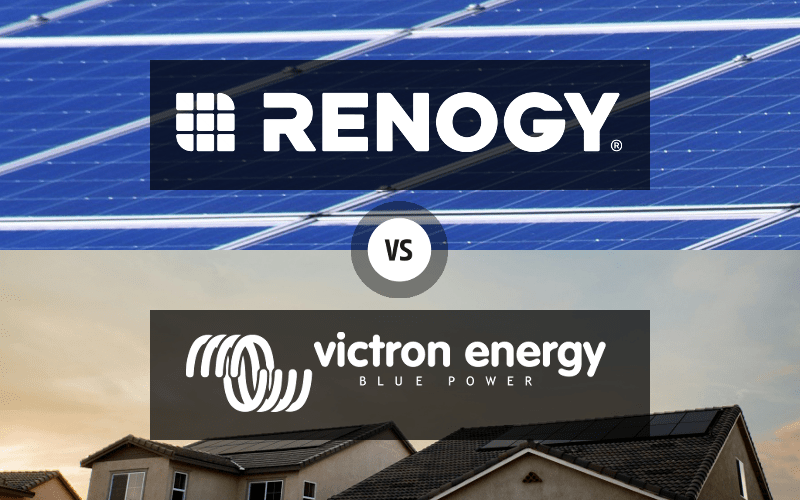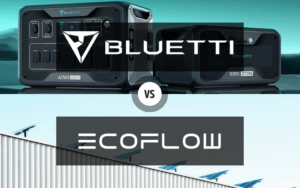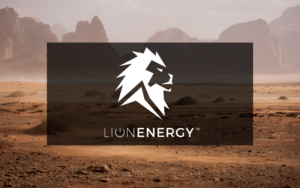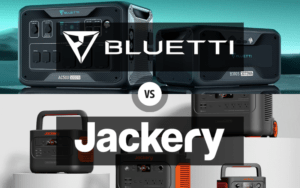In this article, we will look at two well-known brands in the solar industry: Renogy vs Victron Energy.
Renogy and Victron both provide a similar range of products, including solar panels, batteries, and charge controllers. We will start by exploring their product ranges, looking at some of their main product lines and the differentiating factors between them. Then, we will look at their trustworthiness and customer reviews – because what good is a high-spec, affordable set of solar panels if they don’t work and there’s no customer support to deliver on the warranty?
Table of Contents
- Comparison of Solar Panels and Kits
- Background to Renogy and Victron
- Product Range and Applications
- Quality and Reliability
- Ease of Installation and Use
- Efficiency and Performance
- Connectivity and Monitoring Features
- Pricing and Value for Money
- Environmental Impact and Sustainability
- Conclusion and Recommendations
Comparison of Most Popular Products
Solar Kits
Renogy
| Solar Kit Model | Power Output and Voltage | Kit Includes | Price |
| Renogy 400W 12V/24V Monocrystalline Solar Premium Kit w/Rover 40A Charger Controller | 400W, 12V | 4x 100W Compact Panel OR 100W Flexible Panel 1x Rover 40A MPPT Charge Controller 1x 20ft 10AWG AK 8ft 8AWG Tray Cable 4x Mounting Z Brackets (Set) 1x BT-1 Bluetooth Module 1x 10A MC4 and 40A ANL Fuse 3x MC4 Branch Connectors MMF+FFM Pair 1x 2FT 8AWG ANL Fuse Cable | £469.99 |
| Renogy 200W 12V Monocrystalline Solar Starter Kit | 200W, 12V | 2x 100W Mono Panel 1x Renogy Solar Y Branch Connectors 2x Mounting Z Brackets 1x Renogy 20ft 10AWG Solar Adaptor Kit (A pair) 1x Renogy 8ft 10AWG Tray Cables (A pair) 1x Renogy Wanderer Li 30A PWM Charge Controller | £229.99 |
| 200W 12V Flexible Solar Marine Kit w/ 20A Voyager Waterproof Charge Controller | 200W, 12V | 1x Flexible 200W Mono Solar Panel 1x Voyager-20A PWM Charge Controller 1x Renogy 8ft 10AWG Tray Cables 1x Renogy 20FT 10AWG Adaptor kit 1x Voyager Charge Controller Temperature Sensor | £259.99 |
Victron
While Victron doesn’t offer pre-packaged solar kits like Renogy, they provide all necessary components for custom solar solutions.
Solar Panels
Renogy
| Solar Panel Model | Panel Type | Power Output and Voltage | Panel Size (mm) | Price | Warranty |
| Renogy 100 Watt 12 Volt Monocrystalline | Monocrystalline | 100W, 12V | 1062 x 530 x 35 | £89.99 (1 panel) | 25 years |
| Renogy 200 Watt 12 Volt Monocrystalline | Monocrystalline | 200W, 12V | 1491 x 699 x 35 | £159.99 (1 panel) | 25 years |
| Renogy 100 Watt 12 Volt Flexible Monocrystalline | Flexible Monocrystalline | 100W, 12V | 1219 x 546 x 2 | £399.99 (4 panels at £99.99 per unit) | 25 years |
| Renogy 550 Watt Monocrystalline | Monocrystalline | 550W, 42V | 2279 x 1134 x 35 | £635.00 (2 panels) | 25 years |
Victron
| Solar Panel Model | Panel Type | Power Output and Voltage | Panel Size (mm) | Price | Warranty |
| Victron BlueSolar Polycrystalline 115W-12V | Polycrystalline | 115W, 12V | 1015 × 668 x 30 | Around £99.00 | 25-year (power output), 5-year (materials and workmanship) |
| Victron BlueSolar Polycrystalline Solar Panels 175W-12V | Polycrystalline | 175W, 12V | 1485 x 668 x 30 | Around £124.00 | 25-year (power output), 5-year (materials and workmanship) |
| Victron BlueSolar Polycrystalline Solar Panels 270W-20V | Polycrystalline | 270W, 20V | 1640 x 992 x 35 | Around £190.00 | 25-year (power output), 5-year (materials and workmanship) |
| Victron BlueSolar Polycrystalline Solar Panels 330W-24V | Polycrystalline | 330W, 24V | 1956 x 992 x 40 | Around £228 | 25-year (power output), 5-year (materials and workmanship) |
Background to Renogy and Victron
Who are Renogy?
Renogy were formed in 2010 by students from Louisiana State University. As stated on their website, their focus is on transforming global energy use by promoting sustainable living and energy independence. Their mission is to empower 50 million people with DIY-friendly renewable energy products by 2030. They also state that they continue to invest in research and development to innovate in renewable energy. Their products can be purchased directly through their online store, which also hosts their customer support, including a user forum, as well as educational resources.
Who are Victron?
Victron Energy, founded in 1975 in the Netherlands, specializes in battery-based energy systems. Starting as a small technology startup, it has grown into an international company with around 1,000 different products sold around the world. Victron offers solutions for the off-grid sector, ranging from solar home systems to mini-grids. Their products include sinewave inverters, inverter-chargers, solar chargers, and remote monitoring tools. Their website is a little harder to navigate than its competitors, including Renogy, and they don’t seem to have a designated ‘About Us’ page. Whilst it isn’t possible to purchase Victron products directly from their website, as they have no online store, they have a network of distributors, installers, and service partners.
Product Range and Applications
Renogy’s Product Range
Renogy offers a wide array of solar products, designed to cater to various applications, from residential to mobile setups. Here are some of their most popular product categories:
- Solar Panels: Monocrystalline and polycrystalline panels for efficient energy capture.
- Solar Kits: Pre-packaged kits for RVs, boats, and off-grid homes, simplifying the solar setup process.
- Charge Controllers: PWM and MPPT controllers to optimize the charging of your batteries.
- Batteries: Battery types include Lithium ion, LiFePO4, AGM, and GEL batteries.
- Power Inverters: Convert DC to AC power, making solar energy usable for everyday appliances.
- Battery Chargers: Lithium and AGM batteries for reliable solar energy storage.
- Accessories: Mounting gear, cables, and connectors to complete any solar energy system.
Victron’s Product Range
Victron Energy offers a slightly narrower range, more focused on batteries while offering a narrower range, focuses on high-quality, durable power conversion and management products suitable for demanding environments:
- Solar Panels: Monocrystalline and polycrystalline panels for efficient energy capture.
- Inverters and Inverter/Chargers: High-performance units that provide reliable AC power from your DC source.
- Charge Controllers: Efficient MPPT technology for maximizing solar energy harvest.
- Batteries: Battery types include LiFePO4, AGM, GEL, and Lead Carbon batteries.
- DC-DC Converters: Essential for stabilizing and converting DC power across various voltages.
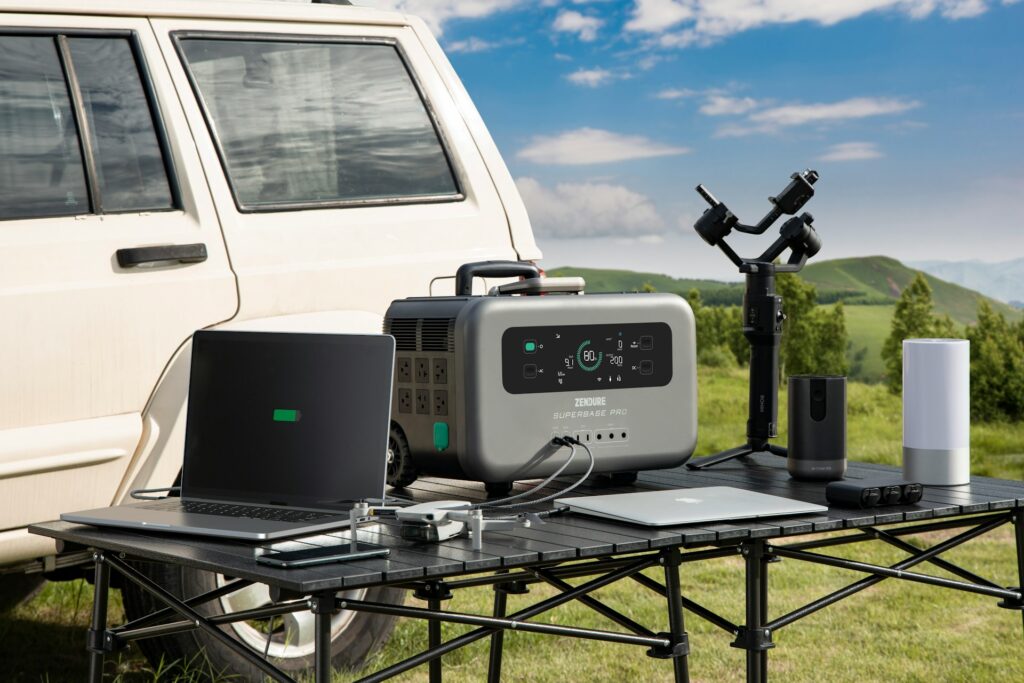
Both Renogy and Victron cater to a spectrum of solar energy needs, from basic setups to sophisticated systems. Renogy’s broad product range appeals to a wider audience, offering everything needed for a complete solar setup. Victron, with its focus on high-quality power conversion and management products, is the go-to for intricate, high-efficiency systems. The choice between Renogy and Victron comes down to your specific needs, preferences, and the complexity of your solar energy project.
Quality and Reliability
This section explores how each brand upholds its reputation through the quality of its products and the reliability they offer, including the warranties that back them up.
Renogy’s Quality
Renogy has built a reputation for producing solar products that offer both quality and value. Their commitment is reflected in the materials used, the manufacturing processes, and the final output of their solar panels, kits, and accessories. Renogy products are known for their durability and efficiency, suitable for a wide range of environments and applications.
- Warranty: Renogy backs its products with warranties that affirm their quality. For example, their solar panels typically come with a 25-year power output warranty and a 5-year material and workmanship warranty, providing customers with peace of mind and confidence in their investment.
Victron’s Quality
Victron Energy’s products are synonymous with precision, durability, and reliability. Specializing in power conversion and energy management solutions, Victron ensures that each product, from inverter/chargers to battery monitors, meets the highest standards of quality. Their products are designed to perform flawlessly in demanding conditions, making them a favourite among professionals and enthusiasts alike.
- Warranty: Victron demonstrates its confidence in product reliability through generous warranty terms. Many of their products, including inverters and battery monitors, come with a 5-year warranty as standard, with the possibility to extend.
The quality and reliability of Renogy and Victron products are unmatched in the solar industry. Renogy’s broad range of solar solutions offers dependable quality for casual and serious users alike, backed by reassuring warranties. Victron, with its focus on high-end power conversion and management, provides professional-grade reliability and the assurance of extended warranties. Choosing between Renogy and Victron will depend on your specific needs, but either brand stands as a testament to quality and reliability in the solar power space.

Ease of Installation and Use
For many solar energy enthusiasts, the ease of installation and use of solar products is a critical factor in choosing the right brand. Both Renogy and Victron understand this need and have tailored their offerings to ensure that setting up and operating their products is as straightforward as possible. This section highlights how each brand caters to user-friendliness in their product designs and support materials.
Renogy’s User Experience
Renogy takes pride in making solar power accessible to everyone, from beginners to seasoned off-gridders. Their products are designed with simplicity in mind, ensuring that installation can be done with minimal tools and technical know-how.
- Solar Kits and Guides: Renogy’s solar kits are especially popular for their ease of installation. These kits come with everything needed to set up a solar system, including detailed instruction manuals and online tutorials that guide you through each step of the process.
- Customer Support: Renogy extends its user-friendly approach with exceptional customer support. Their team is readily available to help troubleshoot any installation challenges, making the process smoother for customers.

Victron’s User Experience
Victron Energy products are revered for their precision engineering and customizability, which appeal to a more technically inclined audience. While their products might require a bit more familiarity with solar power systems, Victron ensures ease of use through:
- Advanced Configuration Tools: Victron offers advanced configuration tools and software, like the VictronConnect app, that simplify setting up and monitoring your system. These tools allow for easy customization and remote management of your solar setup.
- Comprehensive Documentation: Victron provides extensive documentation and support materials, including manuals, whitepapers, and instructional videos, to assist users in the installation and operation of their products.
Both Renogy and Victron prioritize ease of installation and use, but they cater to different user needs and expertise levels. Renogy excels in providing straightforward, easy-to-install solutions that are ideal for DIY enthusiasts and beginners. On the other hand, Victron offers advanced tools and detailed support materials that appeal to users with a bit more experience or those seeking more customizable systems. Regardless of your preference, both brands ensure that their customers can confidently install and use their solar power systems.
Efficiency and Performance
In the realm of solar energy, efficiency and performance are paramount. They determine how effectively solar power systems convert sunlight into usable electricity and maintain their output over time. Renogy and Victron both offer high-performance products, but their approach to efficiency varies, catering to different segments of the solar market.
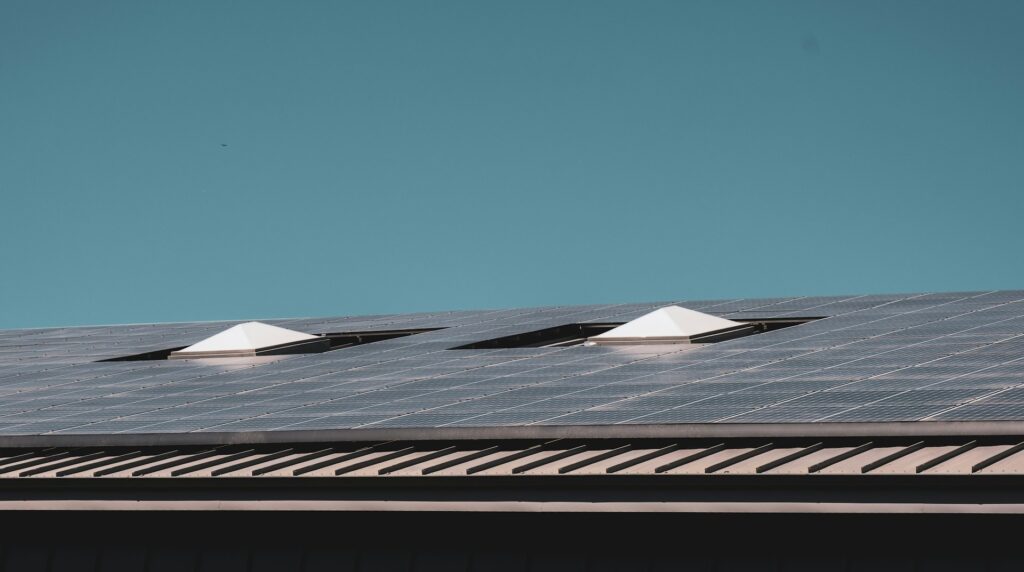
Renogy’s Performance
Renogy’s solar panels and charge controllers are engineered to maximize energy harvest, even in less-than-ideal lighting conditions. Their focus on high-efficiency products ensures that users get the most out of their solar installations.
- High-Efficiency Panels: Renogy’s monocrystalline solar panels are known for their high efficiency, often up to 22%. This is particularly beneficial for users with limited space for installation.
- Advanced Charge Controllers: The MPPT (Maximum Power Point Tracking) charge controllers from Renogy optimize the charge from the solar panels to the batteries, ensuring maximum efficiency and performance, especially in variable weather conditions.
Victron’s Performance
Victron Energy’s strength lies in its power conversion and management solutions. Their products are designed to ensure that every watt of energy produced by your solar panels is efficiently used or stored, with minimal loss.
- Highly Efficient Inverter/Chargers: Victron’s inverter/chargers are renowned for their efficiency, effectively minimizing energy loss during the conversion from DC to AC power. This efficiency is crucial for off-grid systems, where every bit of power counts.
- SmartSolar Charge Controllers: Victron’s SmartSolar MPPT charge controllers not only maximize solar energy harvest but also include built-in Bluetooth for easy monitoring and performance adjustments via the VictronConnect app. This allows users to optimize their systems for even better performance.
Both Renogy and Victron excel in delivering products that stand out for their efficiency and performance. Renogy’s solar panels and charge controllers are ideal for those looking to maximize their solar energy capture with high-efficiency solutions. Victron, with its focus on power management, ensures that the harvested energy is utilized as efficiently as possible, making their products a top choice for intricate solar setups and systems requiring precise energy management. Selecting between Renogy and Victron will largely depend on your specific system requirements and performance expectations.
Connectivity and Monitoring Features
In today’s tech-driven world, the ability to connect with and monitor your solar power system remotely is not just a luxury – it’s a necessity for many. Renogy and Victron both understand this need and have incorporated advanced connectivity and monitoring features into their products. These features not only provide peace of mind but also empower users to optimise their systems for maximum efficiency.
Renogy’s Connectivity
Renogy has embraced the digital age by integrating smart technology into its products, making system monitoring and management more accessible and user-friendly.
- Smartphone Apps and Bluetooth Modules: With the introduction of Bluetooth modules and dedicated smartphone apps, Renogy offers users the ability to monitor and control their solar power systems remotely. Users can track energy production, monitor battery health, and adjust settings directly from their smartphones.
- Renogy DC Home App: The Renogy DC Home App is a central hub for managing Renogy products. It provides real-time data on power usage, system status, and environmental impact, allowing for informed decisions on energy consumption and system adjustments.

Victron’s Connectivity
Victron Energy takes connectivity and monitoring to the next level with an extensive suite of remote management tools designed for precision and control.
- VictronConnect App: The VictronConnect app gives users the power to configure, monitor, and update their Victron devices from anywhere in the world. This app is especially useful for detailed system analysis and performance optimization.
- Victron Remote Management (VRM): Victron’s VRM portal offers an advanced, cloud-based platform for monitoring and managing your energy system. It provides detailed insights into energy consumption, storage levels, and system performance, accessible from any internet-connected device.
Both Renogy and Victron have made significant strides in incorporating connectivity and monitoring features into their solar power systems. Renogy focuses on user-friendly solutions that cater to the needs of casual users and DIY enthusiasts, making system management straightforward and accessible. Victron, with its comprehensive suite of monitoring tools, appeals to users seeking detailed control and analysis of their energy systems. Whether you prioritize simplicity or depth in system monitoring, both brands offer robust solutions to keep you connected with your solar setup.
Pricing and Value for Money
When investing in solar energy solutions, understanding the balance between initial costs and long-term value is crucial. Both Renogy and Victron offer products that cater to different budgetary requirements and value expectations. This section explores how each brand positions itself in terms of pricing and the overall value for money their products provide.
Renogy’s Pricing
Renogy is well-regarded for its commitment to making solar power accessible and affordable without compromising on quality. They offer a range of products that provide excellent value for individuals and businesses looking to transition to renewable energy.
- Competitive Pricing: Renogy’s solar panels, kits, and accessories are priced to accommodate a wide range of budgets, making it easier for newcomers to solar energy to get started without a significant financial burden.
- Cost-Effective Solutions: With bundled solar kits and scalable solutions, Renogy ensures that customers receive high-quality products that offer long-term savings on energy costs. The durability and efficiency of their products mean less need for replacements and maintenance, enhancing overall value.
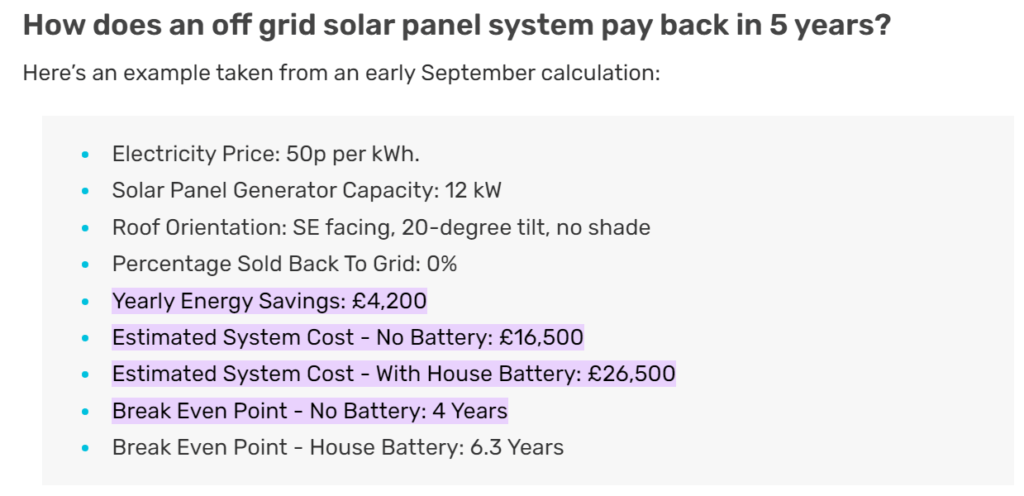
Check out Renogy’s article on the savings you could be making from setting up your own off-grid solar system.
Victron’s Pricing
Victron Energy’s products are positioned at a higher price point, reflecting their premium quality, advanced technology, and superior performance. Their target market includes users who require reliable power solutions for complex systems and challenging environments.
- High-End Investment: While Victron’s products come with a higher upfront cost, the investment is justified by the exceptional durability, efficiency, and performance of their power conversion and management solutions.
- Long-Term Value: Victron products are designed to last, offering extended warranties and lower lifetime costs due to their reliability and minimal maintenance requirements. The advanced monitoring and control capabilities also allow for optimal system efficiency, potentially saving more money over time.
Both Renogy and Victron present compelling cases for their pricing strategies and value propositions. Renogy’s offerings are ideal for those looking for affordable entry points into solar energy with reliable, cost-effective solutions. Victron, on the other hand, appeals to users willing to invest more initially for premium quality and performance, ensuring that their solar power systems operate at peak efficiency for years to come. The choice between Renogy and Victron will depend on your specific needs, budget, and long-term energy goals, but both brands stand out for their commitment to delivering value to their customers.

Environmental Impact and Sustainability
As global awareness of environmental issues grows, the sustainability practices of companies become increasingly important to consumers. Both Renogy and Victron are in the business of promoting renewable energy, inherently contributing to environmental conservation. However, their commitment to sustainability extends beyond their product lines, encompassing various aspects of their operations and product lifecycle.
Renogy’s Commitment
Renogy has established itself not just as a provider of solar products but as a brand deeply committed to environmental stewardship. Their approach to sustainability is multi-faceted, focusing on reducing the ecological footprint of their products and operations.
- Eco-Friendly Manufacturing: Renogy strives to minimize waste and reduce energy consumption in its manufacturing processes, employing eco-friendly materials and methods whenever possible.
- Renewable Energy Advocacy: Beyond selling products, Renogy actively promotes the adoption of solar energy through educational programs and partnerships, aiming to increase awareness and accessibility of clean energy solutions.
Victron’s Commitment
Victron Energy’s approach to sustainability emphasizes the longevity and efficiency of its products. By creating durable, high-performance solutions, Victron ensures that the environmental impact of manufacturing and waste is minimized over the long term.
- Built to Last: Victron products are designed for durability, reducing the need for frequent replacements and thereby lessening the waste associated with product lifecycle.
- Energy Efficiency: High efficiency is a hallmark of Victron’s product line, ensuring that energy loss is minimized and that users can maximize the use of renewable resources. This commitment not only saves energy but also decreases the carbon footprint of their systems.
Both Renogy and Victron demonstrate a strong commitment to environmental sustainability, each taking a unique approach to minimize their impact on the planet. Renogy focuses on promoting renewable energy through eco-friendly manufacturing and community engagement, while Victron prioritizes the creation of durable, efficient products that offer long-term environmental benefits. As consumers become more environmentally conscious, the sustainability efforts of companies like Renogy and Victron not only contribute to a greener planet but also influence purchasing decisions, aligning with the values of their eco-aware customers.

Conclusion and Recommendations
In the journey to find the best solar energy solutions, comparing Renogy and Victron offers insights into two leading brands that cater to diverse needs and preferences. This comprehensive analysis has explored various aspects, from product range and applications to efficiency, performance, and sustainability efforts. Both brands exhibit strengths that make them standouts in the renewable energy market, but they serve different user profiles and applications. Here are the concluding thoughts and recommendations based on the comparison:
Renogy: Conclusion
Renogy excels in offering accessible, high-quality solar products that cater to a wide audience, from beginners to seasoned solar enthusiasts. Their competitive pricing, ease of installation, and comprehensive product range make Renogy an excellent choice for individuals and businesses looking to embark on or expand their solar energy journey.
- Recommendation: For those new to solar energy or seeking cost-effective, user-friendly solutions for residential, RV, or marine applications, Renogy provides an excellent balance of quality, value, and support.
Victron: Conclusion
Victron Energy stands out for its premium power conversion and management products, designed for efficiency, durability, and advanced control. Their offerings are suited for complex systems that require precise energy management, making Victron a go-to for professional installations and applications where performance and reliability are paramount.
- Recommendation: For users with advanced solar energy needs, such as off-grid living, commercial installations, or marine applications requiring robust, high-efficiency systems, Victron offers unmatched performance and longevity.
Making Your Choice
Choosing between Renogy and Victron depends on your specific needs, budget, and priorities. Consider the following factors:
- Budget and Value for Money: If cost is a significant consideration, Renogy offers affordable solutions with excellent value. For those willing to invest in premium, high-performance products, Victron’s offerings are compelling despite the higher initial cost.
- Installation and Use: DIY enthusiasts and beginners will appreciate Renogy’s ease of installation and user-friendly products. Victron’s offerings, while also user-friendly, cater to a more technically savvy audience.
- Performance and Efficiency: Both brands offer high-efficiency solutions, but Victron’s products are particularly suited for demanding applications that require precise energy management.
- Sustainability and Environmental Impact: Both brands are committed to sustainability, but your preference may align more closely with Renogy’s broader educational initiatives or Victron’s focus on durable, efficient products.
Ultimately, whether you choose Renogy or Victron, you’re investing in a future of cleaner, renewable energy. Both brands contribute significantly to advancing solar technology and making sustainable living more accessible and efficient.
Want more brand comparisons? Check out our guide to choosing Bluetti vs Jackery.


